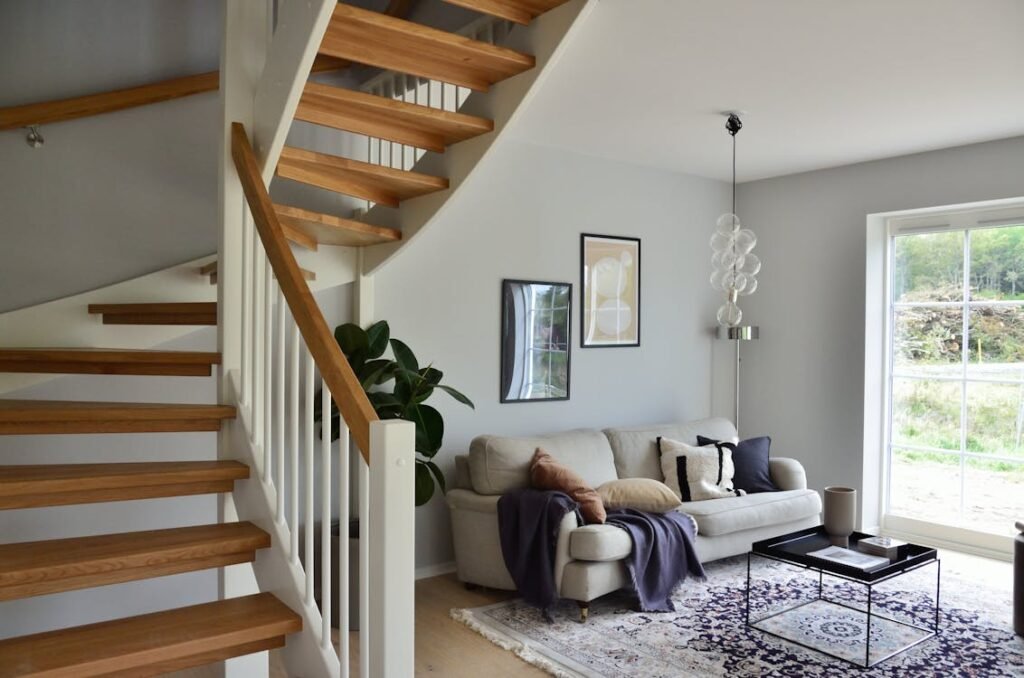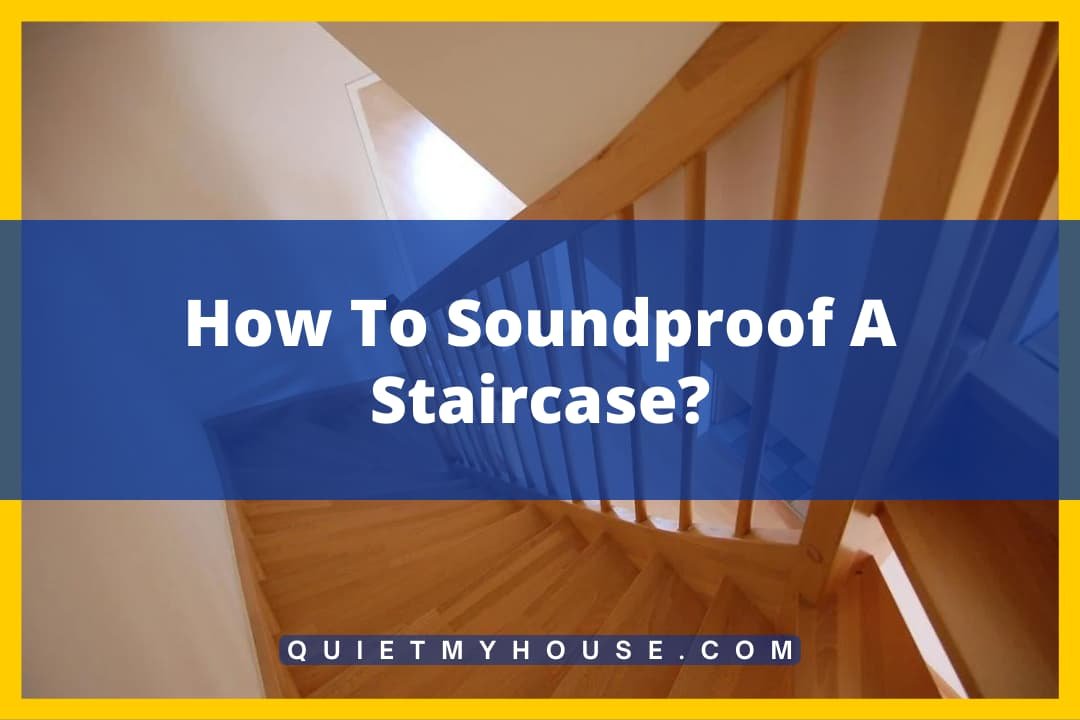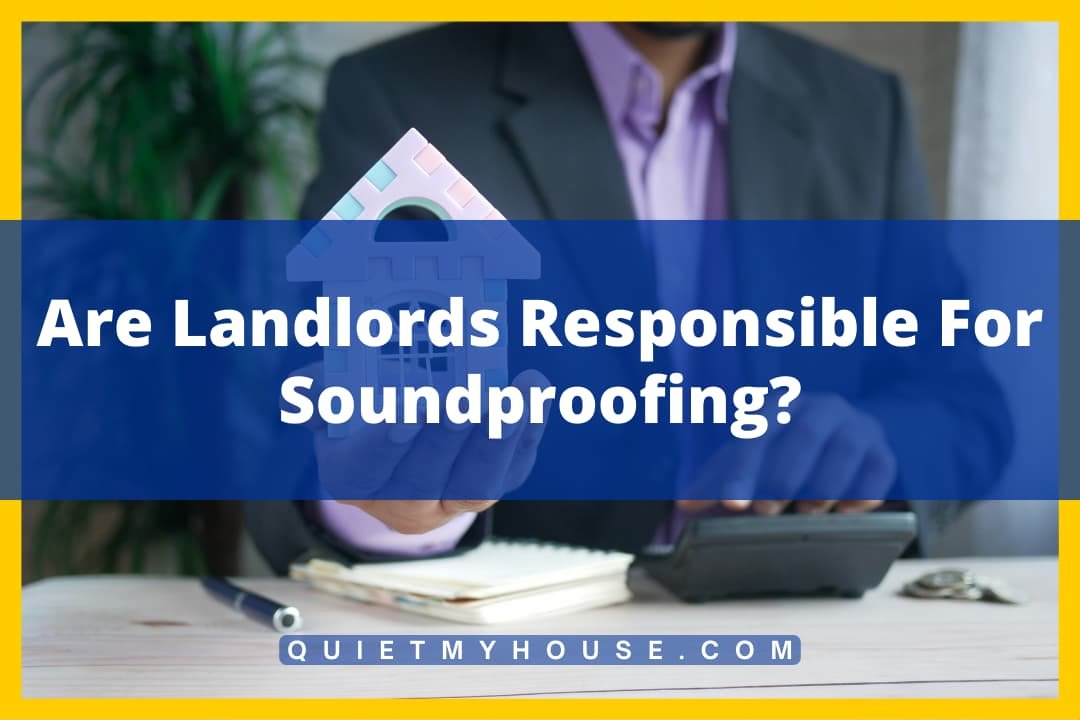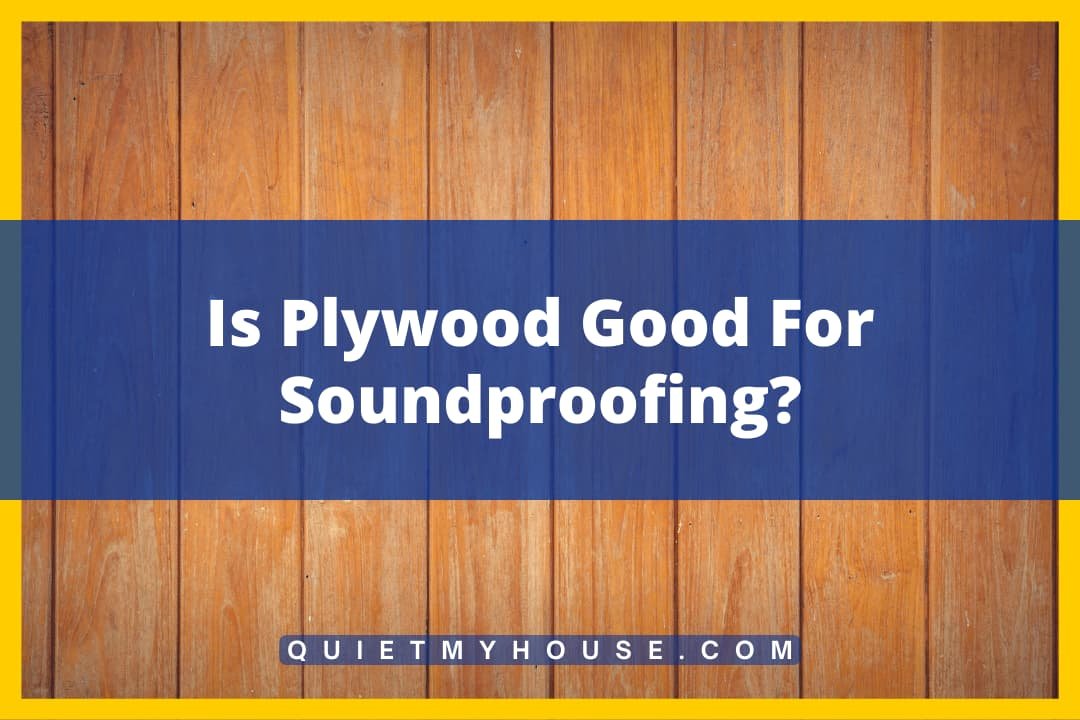You’re about to embark on a journey to explore the intriguing world of soundproofing, specifically, how to soundproof a staircase.
Imagine having a staircase at home that doesn’t echo every footstep – a quiet passage to your upstairs sanctuary. This article will guide you on that transformative adventure, offering detailed and practical advice.
After reading, you’ll have all the knowledge you need to silence your staircase resoundingly. The soothing tranquility you’ve always wanted is just a few steps away!
Understanding The Basics Of Soundproofing
Soundproofing involves using specific materials and techniques designed to reduce, absorb or deflect the amount of sound that travels from one area to another.
It plays a key part in improving the acoustics of a variety of environments, from having a quiet home living space to creating optimal conditions in a recording studio.
The science behind soundproofing
Soundproofing is based on the scientific principle of acoustic treatment. Sound is a wave that moves through the air and other media.
Crafts such as soundproofing aim at reducing the energy of these waves, thus decreasing their power and the sound we perceive. This reduction can be achieved in several ways, including absorption, reflection, or deflection.
Identifying sources of noise in the staircase
Many people don’t realize how much noise can be generated from their staircase. Footfall, voices carrying upward, and household item movements are all common noise sources within a staircase environment. It’s crucial to identify these sources to target them effectively in your soundproofing efforts.
Reasons to soundproof a staircase
Besides providing a more peaceful home environment, there are several reasons to soundproof your staircase. It can help boost your home’s overall value, provide more privacy between floors, and make your living more comfortable.
For those working from home, soundproof stairs can reduce noise disruptions, which is critical during work calls or video conferences.
Evaluating Your Staircase Soundproofing Needs
Before commencing your soundproofing efforts, you need to evaluate your specific needs.
Assess current noise levels
Firstly, you need to assess the current noise levels in your staircase. This process can involve simply spending time in the areas most affected by staircase noises to get a practical sense of how loud it can get.
Identify type of sounds- Voices, footfall, etc
Understanding the type of sounds disturbing your peace is crucial. Footfall noise is quite different from voices or noise from pets running up the stairs. Different solutions may be needed for different types of noise.
Understand the construction of your staircase
Understanding the physical structure of your staircase is also important. Is it closed or open? What materials was it made from? These factors can all affect how much sound is absorbed or reflected.
Check for possible weak spots for sound leakage
Identifying any weak spots in your staircase like gaps or hollow spaces where noise can leak through helps tailor your soundproofing efforts more effectively.
Fundamental Elements Of Staircase Soundproofing
Soundproofing a staircase involves several key elements.
Importance of dense materials in soundproofing
The denser the material, the more difficult it is for sound waves to pass through. So, using dense materials in your soundproofing efforts can significantly help reduce the amount of sound transfer.
Principles of soundproofing: absorption, deflection, and mass
There are three main principles of soundproofing: absorption, deflection, and adding mass. Absorption involves soaking up the sound energy, deflection involves changing the direction of the sound waves, and adding mass makes it harder for the sound to vibrate through the material.
Types of soundproofing: sound absorption, sound insulation, vibration damping
Different forms of soundproofing tackle noise in different ways: sound absorption focuses on soaking up noise within a certain space, sound insulation aims to prevent sound from traveling from one area to another, and vibration damping is about minimizing the vibrations that cause sound.
Materials Often Used In Soundproofing A Staircase
Various materials can be used in your staircase soundproofing efforts.
Soundproofing mats and blankets
These are dense and absorptive materials which, when placed correctly, can absorb a lot of noise and significantly lower the amount of sound being transferred.
Acoustical sealants
Acoustical sealants are specially designed to fill in gaps and cracks where sound might sneak through. They remain flexible and don’t crack over time, ensuring long-lasting noise reduction.
Insulating foam
Insulating foam is an excellent noise blocker. It can also fill in gaps or spaces in your staircase, minimizing places where sound can travel through.

How To Use Sound-Reducing Panels or Carpeting
Sound reducing panels or carpeting can significantly minimize noise levels when used correctly.
Choosing the right sound-reducing panels or carpeting
Look for products designed for high sound absorption. Thicker, denser materials are usually the best choice.
Instructions for installing sound-reducing panels
Most sound reducing panels or carpets come with simple installation instructions. For some you will need to use adhesive, while others might require nails or screws.
Benefits and drawbacks of using sound-reducing panels or carpeting
While sound-reducing panels or carpets can significantly cut down on noise, they may not absorb as much sound as other more intensive soundproofing methods. However, they can be a cost-effective and easy-to-install solution.
How To Install Soundproofing Insulation
Step-by-step guide to install soundproofing insulation
Installing soundproofing insulation involves measuring the area to be insulated, cutting the insulating material to fit, applying it, and securing it in place.
Benefits and limitations of soundproofing insulation
While soundproofing insulation can be quite effective, it won’t block out all noise. It is most effective when used in conjunction with other soundproofing methods.
Safety measures to be taken when installing soundproofing insulation
Always wear gloves and a mask when handling insulation, and make sure the area is well-ventilated.
Using Acoustic Sealants For Soundproofing
Using acoustic sealants is another effective method of soundproofing.
Application of acoustic sealants
Acoustic sealants can be applied to any areas where sound may be leaking through, such as gaps and cracks.
Benefits of using acoustic sealants
Acoustic sealants are usually non-drying and flexible while remaining effective over years, helping to maintain their sound-blocking properties.
Pros and cons of using acoustic sealants
While acoustic sealants can be very effective, they should not be relied on as the sole soundproofing method. They are best used in combination with other soundproofing methods.

Maintaining Your Staircase Soundproofing Over Time
Regular maintenance is key to ensuring your soundproofing stays effective over time.
How to prolong the effectiveness of your soundproofing
Regularly checking for any wear and tear, and making necessary repairs or replacements, will help prolong your soundproofing’s effectiveness.
Regular maintenance check-ups
By scheduling regular check-ups of your staircase, you can identify any issues early on and take necessary preventative measures.
Assessing Post-Soundproofing Results
After completing your soundproofing efforts, its important to assess the results.
Monitoring noise levels
Pay close attention to noise levels in the affected areas and over several days or even weeks to get an accurate understanding of how effective your soundproofing has been.
Making adjustments if necessary
If after monitoring the noise levels, you find that the soundproofing isn’t as effective as you’d like, don’t be afraid to make adjustments. Soundproofing often requires tweaking and refining to get the best results.
Gathering feedback from family or building occupants
Getting feedback from those who are regularly in the space can also give valuable insight into the effectiveness of your soundproofing efforts.
Other Tips and Tricks For Staircase Soundproofing
Aside from the basic techniques and materials, there are a few other tactics.
Implementing soundproofing in your decor
Tactics such as using plush rugs or heavy curtains, or placing large pieces of furniture near your staircase can help absorb extra sound.
Strategic placement of furniture to aid soundproofing
Likewise, strategically placing furniture such as bookshelves near your staircase can help block and absorb sound.
Expanding your soundproofing efforts: Beyond the staircase
Remember that sound doesn’t just come from your staircase. Expanding your soundproofing efforts to other areas of your home, such as windows and doors, can further enhance your home’s soundproofing.
In summary, soundproofing your staircase might require some effort, but with the right materials and techniques in place, a peaceful, quiet home can be within reach.



